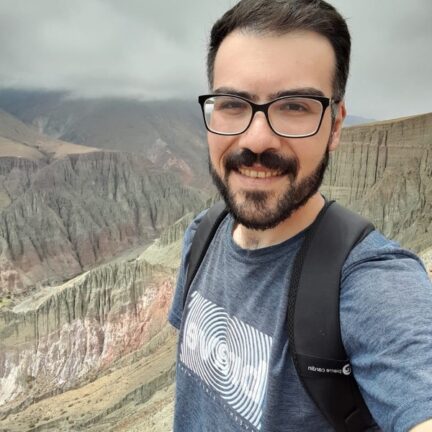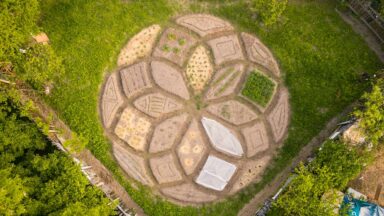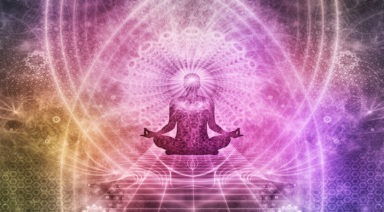What Are the Akashic Records and What Are They For?

The Akashic Records are the energetic archives where the information of every soul is recorded. Everything that has been said, done, and even thought leaves an imprint on this energetic field. What is most astonishing is that we all have the ability to connect with this impressive library of the soul to discover guidance, wisdom, and a deeper understanding of our existence. In this article, we will explore what the Akashic Records are, how to access them, what benefits they can offer, and what is needed to begin this spiritual path.
Table of Contents
- What Are the Akashic Records and What Are They For?
- What Is an Akashic Records Reading Like?
- What Kind of Questions Are Asked in an Akashic Reading?
- Is There Any Danger in Accessing the Akashic Records?
- Who Can Read the Akashic Records?
- How Do You Learn to Read the Akashic Records?
- History and Origin of the Akashic Records
What Are the Akashic Records and What Are They For?
The Akashic Records are a universal memory of existence, an immaterial space where every event, statement, thought, or action is recorded. This archive of the soul not only preserves the history of each individual life and its interpersonal connections, but also captures universal dynamics, providing a complete perspective on the soul’s journey and its evolution through time.
This energetic dimension is accessible through specific meditation techniques and can be consulted to obtain spiritual guidance, healing, and understanding of behavioral patterns and karmic relationships.
In addition to its role as a source of spiritual knowledge, the Akashic Records are used to facilitate personal and collective healing. By accessing this wisdom, people can explore a wide range of topics—from emotional and physical challenges to existential questions—discovering not only the roots of their difficulties but also paths toward deep transformation and significant spiritual growth.
In the series Microdose, available on Gaia, the fascinating subject of the Akashic Records is explored, offering an accessible and practical perspective for those who wish to deepen their understanding and use of them.

What Is an Akashic Records Reading Like?
An Akashic Records reading is an intimate encounter in which a trained reader accesses this energetic dimension to transmit to the seeker the messages that emerge from there. Traditionally, readings were conducted in person, but in recent years, online Akashic Records readings have become increasingly popular, as well as written versions.
The session is carried out through guided meditation and the use of specific prayers, allowing the reader to reach a deep state of concentration and connection to access the seeker’s records. During this process, the reader uses their sensitivity and training to perceive and convey the visions and messages received.
A typical session is structured as follows:
- Session Preparation: Before beginning, the reader and seeker prepare the space, often creating a peaceful and respectful environment, free from interruptions.
- Opening Invocation: The reader uses a specific prayer to open the seeker’s records, requesting permission to access and reveal the necessary information.
- Reception of Information: While in a meditative state, the reader receives images, words, emotions, or even physical sensations that are relevant to the seeker’s inquiries.
- Dialogue and Clarification: As the information flows, the seeker may ask additional questions, and the reader helps interpret the messages received, ensuring clarity and understanding.
- Closing the Records: At the end of the session, the reader performs another prayer to formally close the records, ensuring that the spiritual connection is properly closed.
What Kind of Questions Are Asked in an Akashic Reading?
The questions for an Akashic Records reading can be as varied and profound as the concerns of the seeker. Ideally, the questions should be open-ended and oriented toward guidance and personal growth, avoiding those that require simple yes or no answers.
Here are some common questions that can be asked during a reading:
- What is my purpose in this life?
- What lessons do I need to learn from my past experiences?
- How can I improve my relationships with family and friends?
- Are there any energetic blockages that are preventing me from moving forward?
- How can I use my talents to serve others?
- What can I do to improve my financial situation?
- How can I achieve greater balance in my life?
- What do I need to release in order to heal emotionally?
- Are there any messages from my spirit guides or deceased loved ones?
- How can I prepare for the important changes that are coming into my life?
Is There Any Danger in Accessing the Akashic Records?
Accessing the Akashic Records is a safe practice. Nevertheless, it is common for questions to arise about the potential dangers of the Akashic Records, especially among those who are new to this path. This spiritual practice is based on the opening of a sacred and protected space through specific prayers and meditations that ensure a pure and clear connection with the source of all Akashic wisdom. The process of access is guided by the intention of benevolence and respect for universal wisdom, which ensures that only the information that serves the highest good of the person involved is revealed.
In addition, the guardians of the Akashic Records—beings of light and ascended masters—are always present to ensure that the interactions are for the growth and benefit of the seeker. Therefore, as long as the person approaches the records with respect, humility, and an open mind, there is no risk of adverse effects. On the contrary, access to the Akashic Records can provide a profound understanding that fosters personal and spiritual growth, freeing the individual from old attachments and facilitating a clearer path forward.
Who Can Read the Akashic Records?
Although reading the Akashic Records may seem like a domain reserved for psychics and mediums, in reality, it is within the reach of anyone who wishes to deepen their spiritual understanding. It is not necessary to be a natural clairvoyant or possess special paranormal abilities; with proper preparation and the right intention, anyone can learn to access their own records or even those of others, as long as it is done with respect and responsibility.
The ability to read the Akashic Records is not limited to a chosen few, but rather, it is a skill that can be developed through practice and study. Many spiritual schools and teachers offer courses and workshops that guide aspirants through the process of opening their own records, as well as techniques to interpret the information received in an ethical and compassionate manner. This openness democratizes access to Akashic knowledge, allowing each individual to explore their spiritual heritage and contribute to their personal evolution.
How Do You Learn to Read the Akashic Records?
Many practitioners begin their learning by attending workshops and courses offered by experts, who teach access techniques, opening and closing prayers, and methods for interpreting the information received. These courses also emphasize the importance of ethics and responsibility when reading the records of others.
In addition to in-person courses, there are numerous online resources, such as books, videos, and webinars, that provide detailed instructions on how to access and read the Akashic Records. Ongoing practice is essential, as each reading session helps refine the ability to perceive and communicate the subtle energies and information of the Akashic field. Many readers experience significant growth in their personal and spiritual understanding as they continue working with the records.
History and Origin of the Akashic Records
The Akashic Records, as understood in the modern context, were first brought to prominence by Helena Blavatsky, founder of the Theosophical movement in the late 19th century. Blavatsky introduced the concept to the West after her studies and experiences in Tibet, where monks and mahatmas revealed to her that the records exist in the “akasha” or “akasa”—a Sanskrit word meaning astral light or the ether, the fifth element in Eastern belief systems, considered the fundamental fabric of reality.
Blavatsky, supported by what she called “Masters of Ancient Wisdom,” used her psychic abilities and astral projection to access these records. This knowledge allowed her to establish a theosophical foundation that proclaimed “there is no religion higher than truth.” Her teachings and revelations attracted many followers and helped solidify the idea that human actions, words, and thoughts leave lasting impressions on the etheric plane, influencing Western esoteric doctrine.
Rudolf Steiner, another influential metaphysician, also spoke about the Akashic Records, proposing that every human action and thought leaves a trace in the etheric realms. Steiner contributed to the conceptualization of the Records as a compendium that not only stores past events but also offers patterns for human ideals such as harmony and equity, influencing contemporary thought and applications in the field of human evolution.
Edgar Cayce, known as America’s “sleeping prophet,” further popularized the Akashic Records during the 20th century through his psychic readings. Cayce described in detail how each individual could access the records of their past, present, and future lives to facilitate healing and personal growth. According to Cayce, these records not only document every life but are also fundamental to the soul’s judgment process—an idea that resonated with the biblical notion of the Book of Life.
Contemporary exploration of the Akashic Records has been advanced by theorists such as Ervin Laszlo, who integrates the notion of Akasha with scientific theories to explain phenomena such as consciousness and synchronicity in his “Akashic Paradigm.” Laszlo and other researchers continue to explore how the universal memory of the Akasha can serve as a living archive that influences the life and evolution of every being in the universe, proposing a holistic approach that crosses the boundaries between science and spirituality.
Animals and Universal Consciousness

More often than I like to admit, I’m forced to realize that some people are simply a lot smarter than I am – doggone it. At other times, I catch myself in one of those moments of spontaneous prideful arrogance, thinking how much smarter I am than somebody else.
It’s easy for me to see that there are lots of people smarter than I am, and maybe a few who aren’t. I think, therefore I think I know what intelligence is – but that intelligence has let me down many times in the past, as it has for even “the greatest minds of their times” – former members of The Flat Earth Society and all.
For much of my life I thought that, at least, I was smarter than an animal – an assumption taken for granted in our modern, technological culture. Now, I think that assumption was wrong. I think animals are smarter than all of us, and it all has to do with the arrogant, typically human way I think about what intelligence is.
My intelligence seems to be a function of how well my senses and capabilities work, especially in terms of feeling “successful” about my life; but what if I could hear, see, or smell, thousands of times better than I can? What kind of world would I perceive, and how much more would I know about it? What if I didn’t have to worry about wearing clothes (believe me, I do), or whether I had a roof over my head? What if the supermarket were closed, or I was dropped in the middle of the ocean or the woods – could I feed myself, or would I end up becoming somebody’s dinner? Suddenly, I don’t sound much like ‘the top of the food chain.’
“Stay calm. Share your bananas.”—Koko the Gorilla
Profound Consciousness in Animals
One of the most difficult barriers for people to break is the one that prevents us from perceiving the profound levels of consciousness alive in our animal relatives. This kind of prison of the human ego that demands we place ourselves above all other creatures is possibly the most soul-depleting (and destructive) obstacle to human spiritual evolution there is, forcing us to live life through the limited filter of human sensory experience, generally misinterpreted by our collective and personal ego, and the delusions of “intellect.” As a result, we tend to destroy our home and hurt those from whom we could learn the most.





































